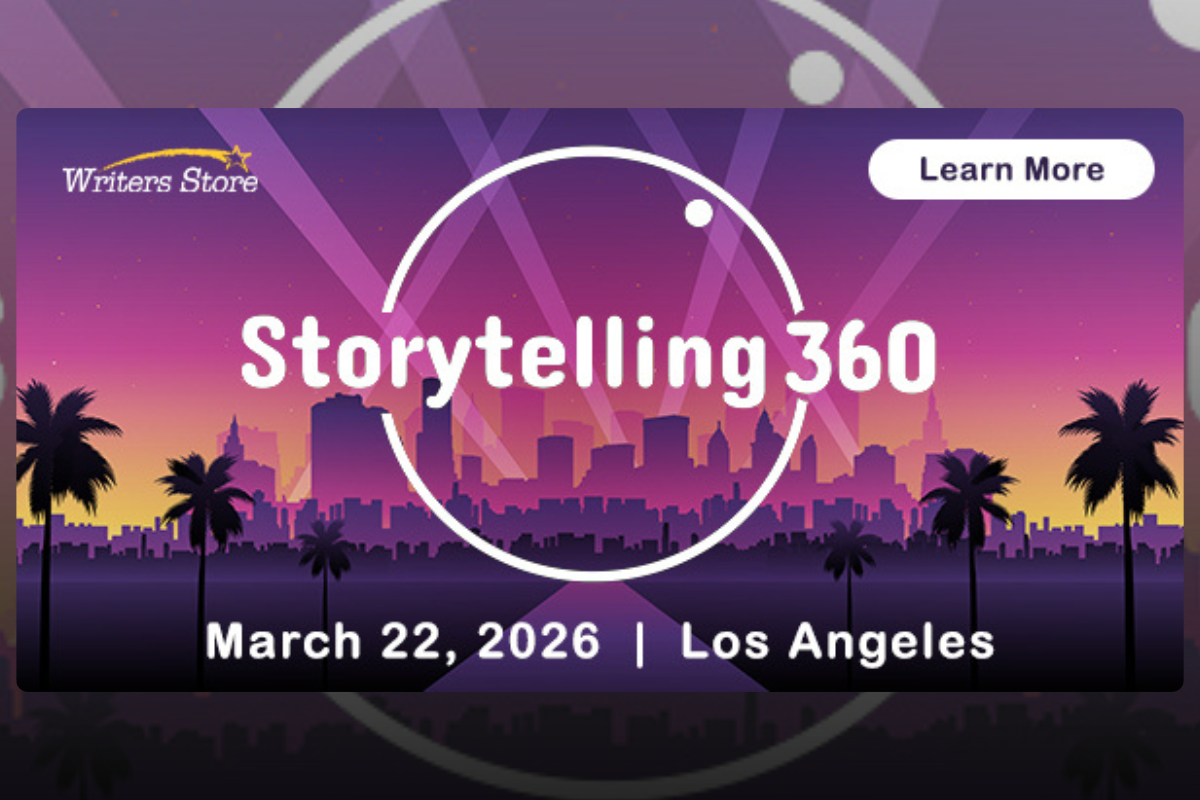INTERVIEW : Adapting a Play – Down the ‘Rabbit Hole’
Ray Morton sits down with playwright and screenwriter David Lindsay-Abaire as he details the feature-film adaptation of his Pulitzer Prize-winning ‘Rabbit Hole’ and why he had to re-imagine the stageplay almost entirely to turn it into a movie.
Ray Morton is a writer, senior contributor to Script magazine and script consultant. His new book A Quick Guide to Screenwriting is now available online and in bookstores. Follow Ray on Twitter: @RayMorton1
When Alice tumbled down the rabbit hole into Wonderland, she found herself thrust into a bizarre, unfamiliar world where nothing made sense and she had to adapt herself to an entirely new way of being.
Becca and Howie Corbett find themselves in a similarly disorienting situation following the accidental death of their young son: Their safe and secure suburban life is shattered; their once-close and happy relationship becomes cold and distant; they clash over Becca’s attempts to clear their home of their late child’s clothes, toys and drawings—Howie finds comfort in these familiar mementos, while seeing them brings Becca nothing but pain; and each seeks solace outside the home—Howie by considering an affair with Gabby, a woman he meets in a support group for grieving parents, and Becca by reaching out to Jason, the teenage boy who drove the car that killed her child.
The Corbett’s struggle to survive their traumatic upheaval and find a way to reconnect and carry on is the story of Rabbit Hole, a film written by David Lindsay-Abaire based on his play. Directed by John Cameron Mitchell, Rabbit Hole is a Lionsgate presentation of an Olympus Pictures/Blossom Films/OddLot Entertainment production and stars Nicole Kidman (who also co-produced), Aaron Eckhart, Dianne Wiest, Miles Teller, and Sandra Oh.
Lindsay-Abaire spoke with Script about the experience of adapting his intimate stage drama into a motion picture.
Where did the idea for Rabbit Hole come from?
DAVID LINDSAY-ABAIRE: The seed of the play came when I was a student at Juilliard. A teacher of mine, Marsha Norman (the Pulitzer Prize-winning playwright of ‘night, Mother), had said to us, “If you want to write a good play, write about the thing that frightens you most in the world.” And when I was in my early 20s, I honestly didn’t know what that was. A drive-by shooting? But I tucked the information away, and a few years later, I became a dad. When my son Nicholas was around three, I heard two or three stories of friends of friends who lost children very suddenly. As a relatively new dad, I, of course, put myself in the shoes of those parents and, in so doing, experienced fear in a way—a profound way—that I never had before. When I did, Marsha’s words came back to me. I said, “Oh wait, the thing that frightens me most in the world. I think I know what it is now.” And that became the seed of the play.
Prior to Rabbit Hole, you were known for writing several madcap comedies set in exaggerated realities. Whatmade you decide to then write a realistic and very serious drama?
DL-A: I did very well critically ... with the comedies, but the critics who disliked the plays hated them with such an unbridled passion. So, I never really got a middling review ever—I got rave reviews and I got pans.
The people who hated [the comedies] pissed me off a little bit because I would see them review other plays that were more naturalistic, more realistic, and whether the plays were good or bad, they approached them in a different way. They would speak of them more respectfully—I assume because they were naturalistic and they were easier to understand. But the comedies, they would just dismiss out of hand saying, “This is just nonsense. I don’t even really need to talk about it,” without doing what I think is their job, [which is to say] “Even if I disliked it, what was he trying to do, or, thematically, what’s going on?”
So, in the back of my head for a long time, I thought “I could write one of those stupid naturalistic plays—I could write one of those Pulitzer Prize-winning plays—if I wanted to.” But if I wrote a play like that just out of spite, it would have been terrible, I’m sure. It wasn’t until the idea for Rabbit Hole occurred to me that I thought, “Now wait a minute, maybe this is the naturalistic play that I’ve been wanting to write.” [However, even though Rabbit Hole was more serious, it was still important to include humor] because if the play didn’t have comedy in it, then it would become a really dour, morose thing that nobody would ever want to sit through.
Many critics saw the change from extreme comedy to serious drama as being a radical departure for you. Did itfeel that way to you?
DL-A: It felt different in execution, but not in theme. All of my comedies are about people finding themselves in an upside-down world, trying to make sense of that world that doesn’t make sense, and figuring out what their identity is inside of that world. And that’s exactly what Rabbit Hole is about.
(The result of Lindsay-Abaire’s efforts was wildly successful: Rabbit Hole earned rave reviews, ran for 77 performances on Broadway, and won star Cynthia Nixon a Tony® and Lindsay-Abaire the Pulitzer Prize for Drama.)
How did the film version come about?
DL-A: I had never thought of it as a film until I was approached. Nicole Kidman was in a Starbucks in Nashville, so the story goes, reading The New York Times, and she saw the review that Rabbit Hole got in the Times and thought, “Oh, this sounds really interesting.” She called up her producing partner Per Saari and said, “You’re in New York, go see this play.” So Per came and saw the play and got a copy and Nicole read the play and they both thought, “Oh, I think this would make a good [movie], I wonder if David has any interest?” I started meeting with them and, of course, thought, “Maybe this could be a movie.”
The stageplay was a very contained piece, consisting of a series of conversations taking place completely inside the Corbett home. What were the challenges of adapting it to the screen?
DL-A: I had to re-imagine the play fairly entirely to turn it into a movie. When I decided to turn it into a screenplay, I put the play aside and thought, “Okay, if this never existed as a play, how would I tell this story as a movie?” Parts of the play organically made it back into the screenplay, of course, but I did try to find visual equivalents to things that were in the play—like the comic book. (Ed. Note: In the play, Jason writes a science-fiction story about characters that travel to alternate universes, allowing Becca to imagine that there’s a place out there where she is still happy. In the screenplay, Jason creates a similarly themed comic book.)
The other thing that the play had in its back pocket, that most plays don’t have and [which is why they] don’t make very good movies, is that it had a fairly large, involved offstage life. There were a lot of things that were described in the play that happened offstage. Specifically, the support group is something that is talked about a lot in the play but we never see the support group, we only hear about the support group. Howie’s affair—or potential affair—which is one of the backbones of the plot in the movie—is only hinted at in the play. We never meet the Sandra Oh character [Gabby]. I mean, she’s mentioned in the play, but we don’t meet her and we don’t know for sure whether Howie is having an affair or not. It’s just something that [Becca’s] sister sort of finds out about and is talked around, but we’re not sure what happens there. The supermarket scene (in which Becca has a striking encounter with the mother of a whining child), which is one of the better scenes in the movie, is only described in the play. Jason’s prom is described in the play. Lots and lots of stuff like that. We hear about the sister’s bar fight; in the movie, of course, Nicole Kidman’s character gets a call in the middle of the night and has to bail her sister out. There’s all sorts of stuff that I thought, “Oh wait, I can actually go to all of these places, dramatize all of these things that I could only talk about in the play.” So, that was all there.
And in a funny way, [dramatizing this material] served the story as a by-product in a really terrific way—it actually activated my main character and made her a more cinematic character, a more active character, because she’s leaving the house. The play is very much about this woman sort of being stuck in a rut in her life in the house. The boy is the one who writes to the family, for example, and obviously, in the movie, she sees that boy on the bus and begins following him and is in pursuit of him. At that point in the story, the film audience doesn’t know who he is or why she is following him, and I suspect she as a character doesn’t know why she’s following him either, but underneath it, there is this desperate need to connect with someone. That was all just a result of opening up the story to try to make it more cinematic and visual.
One of the most impressive things about the screenplay is its restraint. Whenever the material threatens to become melodramatic or sentimental, you opt instead for a simple subtlety and realism not usually found in Hollywood films. Was there ever any pressure to make the material bigger or broader?
DL-A: No pressure at all. Honestly, not even a little bit. I mean, that was in the main pitch that Nicole and Per had when they sat me down. I was very upfront with them. I said, “Look ... Rabbit Hole is very close to me and important to me, and I don’t mind it just being a play. I don’t need to have a bad version of the play turned into a movie because then it will live on and people will only know the movie and that would suck.” They said, “We have no interest in turning this into something that it isn’t. We want to make sure that you are 100 percent behind everything that happens leading up to filming, and then during filming, and then after filming. We want you to be part of that process. We want to be true to your story.” And, y’know, people say that and they don’t always mean it or they may mean it but then they lose sight of it later for whatever reason, but I crossed my fingers and they stayed true to it.
I’ve done a couple studio movies where you’re hired to write it and then you do a first draft and then notes start coming in from 15 different people, and all 15 of those people have a different movie in their head, and you can never really please even two of those people, let alone 15 of those people. Suddenly, you’re having to address all these notes, and by addressing 15 sets of notes, the story inevitably, I think, becomes a bit watered down or a little too cliché or all those things that happen in the studio system. So, I really didn’t want that to happen for Rabbit Hole and it didn’t.
(John Cameron Mitchell was hired to direct the film. Mitchell, who had previously made the transsexual musical Hedwig and the Angry Inch and the sexually explicit comedy-drama Shortbus, was considered a controversial choice by some because of the flamboyant and outrageous nature of his earlier work, but not by Lindsay-Abaire.)
What made you feel that John Cameron Mitchell was the right person to direct this movie?
DL-A: Hedwig is obviously about wigs and musical numbers and costumes and just over-the-top stuff, and some people think of Shortbus as “Oh, that sex movie.” To me, all the musical numbers and the wigs and all the sex scenes—those are wrapping paper around stories that again are about lost people seeking clarity or seeking connection, really desperately seeking connection. So, again, those stories are also very much what Rabbit Hole is about, it’s just that the wrapping paper around Rabbit Hole isn’t as flashy or full of ribbons. John had a very personal connection to the story and he seemed to understand what it was about. John is incredibly big-hearted, very honest, but also a really funny, wry guy and he knew how important humor was to the story.
During the editing, you were concerned that some of the humor was getting lost.
DL-A: There are lines that I knew killed every night on Broadway that got cut—a lot of them by me but ... in editing, John cut a few more and I thought, “Oh God, are you kidding? I know that’s a great line.” In particular, the sister character got cut a lot, and she had a lot of jokes that I thought, “Oh God, if that humor isn’t in the beginning of the film, this is going to become one of those sad, morose, dead-child movies.” But it didn’t occur to me that I had written all of this other stuff that I had never seen in front of an audience. So [at the premiere] in Toronto, there were all of these laughs that I’d never heard. And I’m thinking “Oh, right, 70 percent of the movie wasn’t in the play. I’m okay, they’re still laughing.”
You saw the film for the first time with an audience in Toronto. What was that experience like?
DL-A: It was incredibly gratifying ... but even more than gratifying, it was a huge relief. Everybody made the same exact movie. It’s a miracle when that happens. [So when] I saw it in Toronto, I could look up at the screen and say, “That’s how I imagined it— that’s it.”
Originally published in Script magazine January/February 2011
If you're looking to adapt source material, be sure to
sign up for Screenwriters University's class
Writing the Adaptation
Get our FREE Tips on Acquiring Book Rights and Writing an Adaptation today!
Ray Morton is a writer and script consultant. His many books, including A Quick Guide to Screenwriting, are available online and in bookstores. Morton analyzes screenplays for production companies, producers, and individual writers. He can be reached at ray@raymorton.com. Twitter: RayMorton1







